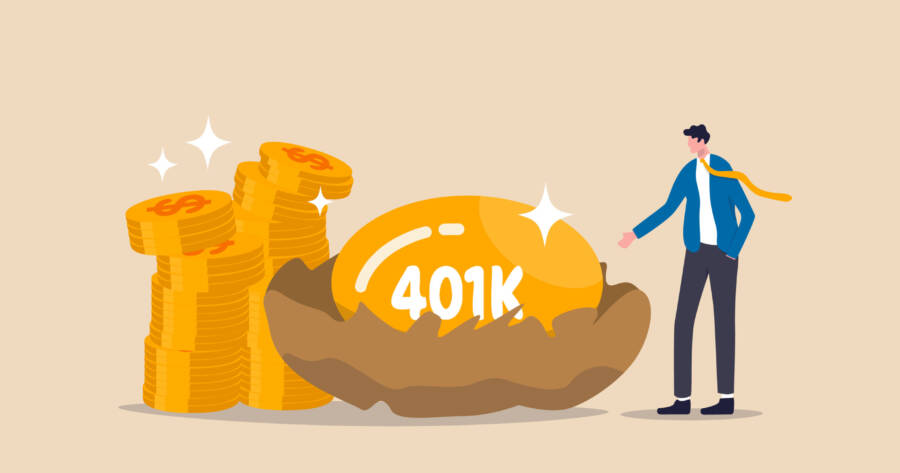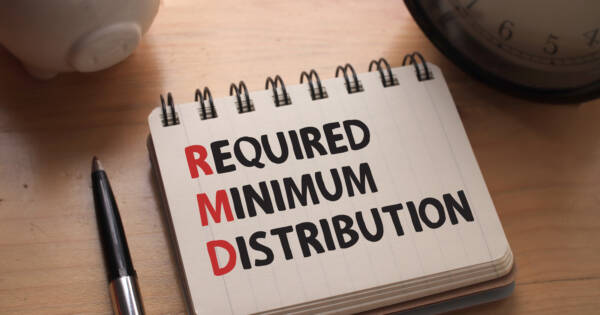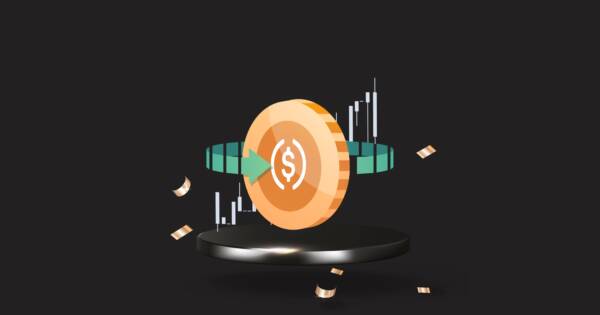A 401(k) is a savings vehicle that you can use to help save for retirement. These plans are offered by employers to their employees. Many 401(k) plans also include an element of employer matching. That means your company will also contribute some funds, based on your own contributions. The Internal Revenue Service (IRS) views 401(k) accounts as a “tax deferred” retirement vehicle. This means you can save and invest money in one account without paying taxes.
You only pay taxes once you start to withdrawal money from your 401(k) account, presumably in retirement. In this article, we will answer the question “what is a 401k plan?” and also help you better understand how they work. Finally, we’ll show you how to use one to help ou get the retirement you always wanted.
How They Work
As mentioned, a 401(k) is a tax-deferred retirement savings account that is offered by employers to their employees. When employers want to give their employees a tax-advantaged way to save for retirement, they often provide a 401(k) option. These are different than a defined pension plan.
Typically, employees contribute a percentage of their pre-tax salary to their 401(k). Then, employers might offer to match those funds (up to a certain limit). In most cases, these contributions come via salary deferrals. That is, they deducted directly from your regular paycheck and appear on your paystub with any other deductions.
Investment Options
The funds contributed to a 401(k) can be invested in various places. You can typically select stocks, bonds, mutual funds, and exchange traded funds (ETFs), among other securities. Investment gains and income through dividend payments accumulate and compound on a tax-free basis. Gains in a 401(k) are not taxed until the money is withdrawn, presumably in retirement as income.
Some U.S. employers also offer what are known as Roth 401(k)s. Unlike a traditional 401(k), contributions to a Roth 401(k) account are funded with after-tax money. They are not tax deductible, but any withdrawals are made on a tax-free basis. There are a few specific cases where this might be advantageous for you, like you expect to actually have a higher income in retirement than you do in your working years.
Tax Benefits
Your contributions to a 401(k) account comes with some notable tax benefits. For starters, your total contributions will reduce your taxable income for that year by the contribution amount. For example, if you earned $100,000 and contributed $10,000 to your 401(k), your taxable income for the year would be reduced to $90,000. That’s before any other deductions or tax credits you may be eligible for.
As of 2021, you can contribute up to $19,500 per year to a traditional or Roth 401(k). There’s an additional $6,500 catch-up contribution amount allowed for those aged 50 and older. The IRS typically reviews and adjusts contribution limits every year, based on inflation and other factors. These numbers are published every Spring, ahead of the tax filing deadline.
Employer Contributions
As we mentioned, employers often match a percentage of your contributions. You should consider this “free money.” The only catch is that you have to save some of your own cash in order to receive it, and you can’t spend it until retirement. Even with these conditions, not taking advantage of this free money is a mistake that many people make.
You employer may offer to match your contributions annual, with a ceiling. For example, they may offer a dollar-for-dollar match up to $10,000 per year. In other cases, they may offer to match based on percentages. For example, my last employer offered to match 100% of our contributions if we saved up to 3% of our gross pay. They then offered to match 50% of our contributions between 3% and 5%. That meant that if we contributed 5% (or higher), the company would also commit an additional 4% of our annual incomes on top of that. The end result was that most employees were saving the equivalent of 9% of their income every year, although they only have to give 5% of it themselves.
Maximizing Contributions
You should be aware that you might need to meet certain conditions in order to qualify for your employer matching. As with our previous example, you wouldn’t get the maximum benefit unless you committed to saving at least 5% of every paycheck. You should pay close attention to these conditions, limits, and numbers.
It’s important to review your 401(k) documents carefully. If there any form of company match, do your absolute best to make sure you’re receiving all of it. If you don’t, you’re literally leaving free money on the table. Even if you struggle to budget for the saving requirement to reach a full matching amount, get as close as possible. Turning down free money is never a smart financial decision.
 Shutterstock
Shutterstock401(k) Withdrawals
As mentioned, money withdrawn from a 401(k) account is taxed. It will be taxed at your personal income tax rate for the year you withdrew it. There are no penalties for withdrawals, though, as long as you are 59 and a half years old. Otherwise, you’ll pay extra to get your hands on this money. In some cases, you are permitted to take loans or hardship withdrawals from your 401(k) account. However, you need to get permission from the IRS to do this. You also have to commit to paying your 401(k) back entirely within a few years.
Loan repayments are generally deducted from an employee’s paycheck. Keep in mind that money withdrawn from a 401(k) early can have long-term impacts on a person’s retirement savings. There can be sizable penalties for taking money out before age 59 and a half. These accounts generally work best, since your income naturally drops when you stop working. That means you’ll probably have to pay less taxes on your 401(k) withdrawals once you hit your 60s.
Required Minimum Distributions
In most cases, 401(k) accounts are subject to required minimum distributions. After age 72, you must start withdrawing a specified percentage from their 401(k) plan. The percentage that must be withdrawn depends on the person’s age.
However, if you’re still working (and your 401(k) account is with your current employer), you may not have to take a minimum distribution until you fully retire or leave their employer permanently. If you’re not sure, check with your company’s 401(k) account rep or a local accountant or tax lawyer.
Limits For High Earners
There are a few limits placed on 401(k) contributions for those who are viewed as “high earners” by the IRS. In 2021, highly paid people can only use the first $290,000 of income when computing the maximum possible contributions.
Employers also can provide non-qualified plans, such as deferred compensation or executive bonus plans for high earning employees. However, these plans also come with contribution limits and specific rules established by the IRS.
Easy To Manage
If you’re employed by an organization that offers a 401(k) plan, you should absolutely take advantage of it. Not only is there likely to be a matching component, but this is a great way to get started on your retirement savings — even at a young age.
A 401(k) tends to be easier to manage — especially for those who don’t consider themselves experts at investing. These plans have plenty of “set it and forget it” investment options. You simply estimate what year you’re likely to retire, and the company responsible for the 401(k) plan will invest accordingly. They may use some riskier investments while you’re still decades away from retirement, and then slowly transition your money into “safer” investments as your retirement date gets closer. All without you have to do a thing.
 Shutterstock
ShutterstockTransfers To An IRA
The IRS allows you to transfer money from a 401(k) to an individual retirement account (IRA). This is often done if you leave your job (for whatever reason), and want to take your 401(k) savings to a new place. You should know, though, that it’s also an option to simply leave the funds where they are. You won’t be able to make any further contributions to that specific account, but you won’t lose the money either. It will continue to grow over time.
You should know, however, that the process to transfer your 401(k) funds is carefully controlled by the IRS. If you ignore their rules or make mistakes, you could get hit with penalties or unexpected tax bills. Make sure you follow the transfer rules accordingly, whether you’re starting and IRA or moving your funds to a new 401(k) account with your new employer.
The Bottom Line
A 401(k) is a beneficial way to save for retirement. It provides tax advantages for people as they work to build a nest egg that they can live on once they leave the workforce. The contributions provided to a 401(k) account by an employer can be extremely helpful in helping to grow a nest egg. Importantly, people should contribute enough to their 401(k) to ensure they receive the maximum possible contribution from their employer. When in doubt, seek professional advice on 401(k) accounts from an investment or tax professional.








